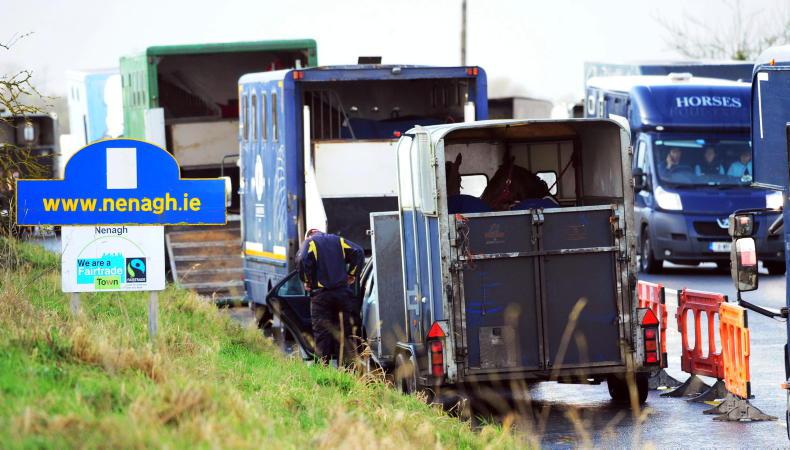AS I pulled out with my pick-up and trailer to collect a horse from stud the other day, I got to thinking about how much I really know about towing regulations. How much does fuel weigh anyway?
Weights: It is your responsibility as driver to know the capacity of your vehicle, tow-hitch and trailer.
You can find this information on the manufacturer’s statutory plate normally located inside the passenger door or under the bonnet.
Unladen weight: This is the weight of the horsebox when it is not carrying any passengers, goods or other items. It includes the body and all parts normally used with the vehicle when it’s used on a road. It does not include the weight of fuel or water.
Maximum Authorised Mass (MAM): This is the weight of the horsebox including the maximum load that can be carried safely when it’s being used on the road. This is also known as gross vehicle weight (GVW) or permissible maximum weight (PMW). It will be listed in the owner’s manual or the aforementioned plate or sticker fitted to the vehicle.
Example trailer weights
Payload: If you want to buy a 3.5 tonne horsebox, payload is the amount of load you can legally add to the empty horsebox without exceeding the 3.5 tonne MAM. Payload includes, amongst other things, water, fuel, people, horses and tack. The payload is calculated by removing the unladen weight from MAM.
Weights to consider
Horses: An average horse weight is approximately 600kg and the average pony weight is 300kg.
Fuel: Approximately 1ltr of fuel weighs 1kg. As an example a 4.5 tonne horsebox has a 90ltr fuel tank so a full tank weighs 90kg.
Water: Approximately 1ltr of fuel weighs 1kg.
For example a 4.5 tonne horsebox has 85 ltr water tank, so full to the brim 85kg of water. It will save weight and fuel costs if you fill up at your destination.
Saddles: For saddles allow 10kg each
Humans: This can be a can of worms with weights ranging from children to adults. Choosing a middle ground plump for 80kg each.
Hay bale: A hay bale weighs approximately 25kg.
Shavings bale: Most common is a 10kg bale
Speed: The legal speed limit while towing a trailer is 80km/h unless a lower speed limit is signposted.
Brakes: Trailers not exceeding 750kg are not obliged to have brakes unless they have a DGVW more than half the DGVW of the towing vehicle. All trailers above 750kg and not exceeding 3.5 tonne must have brakes fitted on wheels. They must also be fitted with a service break, parking brake and breakaway cable or secondary coupling.




 This is a subscriber-only article
This is a subscriber-only article
 It looks like you're browsing in private mode
It looks like you're browsing in private mode





SHARING OPTIONS: